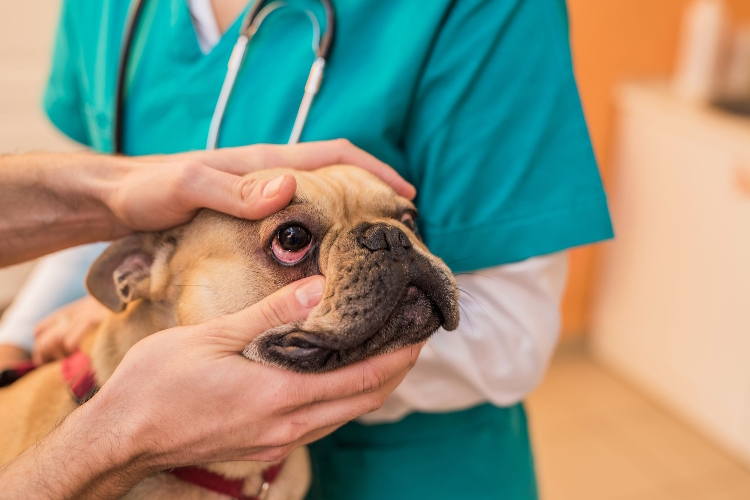Visit our new location opening September 9, 2025: 3427 E Trinity Mills Rd, Ste. 600, Dallas, TX 75287
How to Prepare for Your Pet’s Visit
Patient Forms
Prior to arrival at your first visit, please fill out the online Client Information and History Form.
Appointments
Office hours are 8:30 am to 5 pm, Monday through Friday. Patients are seen by appointment only. The initial examination is approximately 30 minutes. We make every effort to see each client at their appointment time, but emergencies must take precedence. If you find it necessary to cancel your appointment, please let us know as soon as possible.
Please ask your veterinarian to send a copy of your pet’s records. We will need most recent records on the eyes, lab work and any medications dispensed or prescribed. Please bring any medications that your pet is on to your appointment.
Please no food in the A.M. if surgery is anticipated.
Please bring the name, address, and phone number of your referring veterinarian.
If your pet requires special handling, please contact our office for assistance before coming into the building.
Testing
 There will be a number of tests that will be performed on patients to check for specific eye problems.
There will be a number of tests that will be performed on patients to check for specific eye problems.
- Tonometry: To measure the pressure in the eye
- Schirmer Tear Test: To measure tear production in the eye
- Fluorescein Stain: To check for ulcers or abrasions on the surface of the eye
- Gonioscopy: To view angles in the eye
How We Partner with Your Veterinarian
The majority of cases seen at the Animal Ophthalmology Clinic are referred by a general practitioner. Optimal patient care requires mutual communication among the client, specialist, and referring veterinarian. Information from the referring veterinarian regarding the patient’s medical history, previous treatment, and specific medications used is beneficial in the diagnosis and management of the case.
When you leave the office, a complete written report is sent to your referring veterinarian. Please be sure that his or her proper name and address is given to the receptionist, so that the report is insured to be received by your doctor. Remember, your regular veterinarian will administer your pet’s primary health care for many years to come. The act of referring a difficult ophthalmic case exemplifies your veterinarian’s concern for your pet, and it is important to keep him or her informed as to the progress of your pet’s eye condition.

"Couldn't be happier with the expertise and execution of the staff here. Incredibly informative and stellar work. Truly impressive!"
Matt Blum
Cookies on this website are used to both support the function and performance of the site, and also for marketing purposes, including personalizing content and tailoring advertising to your interests. To manage marketing cookies on this website, please select the button that indicates your preferences. More information can be found in our privacy policy here.


